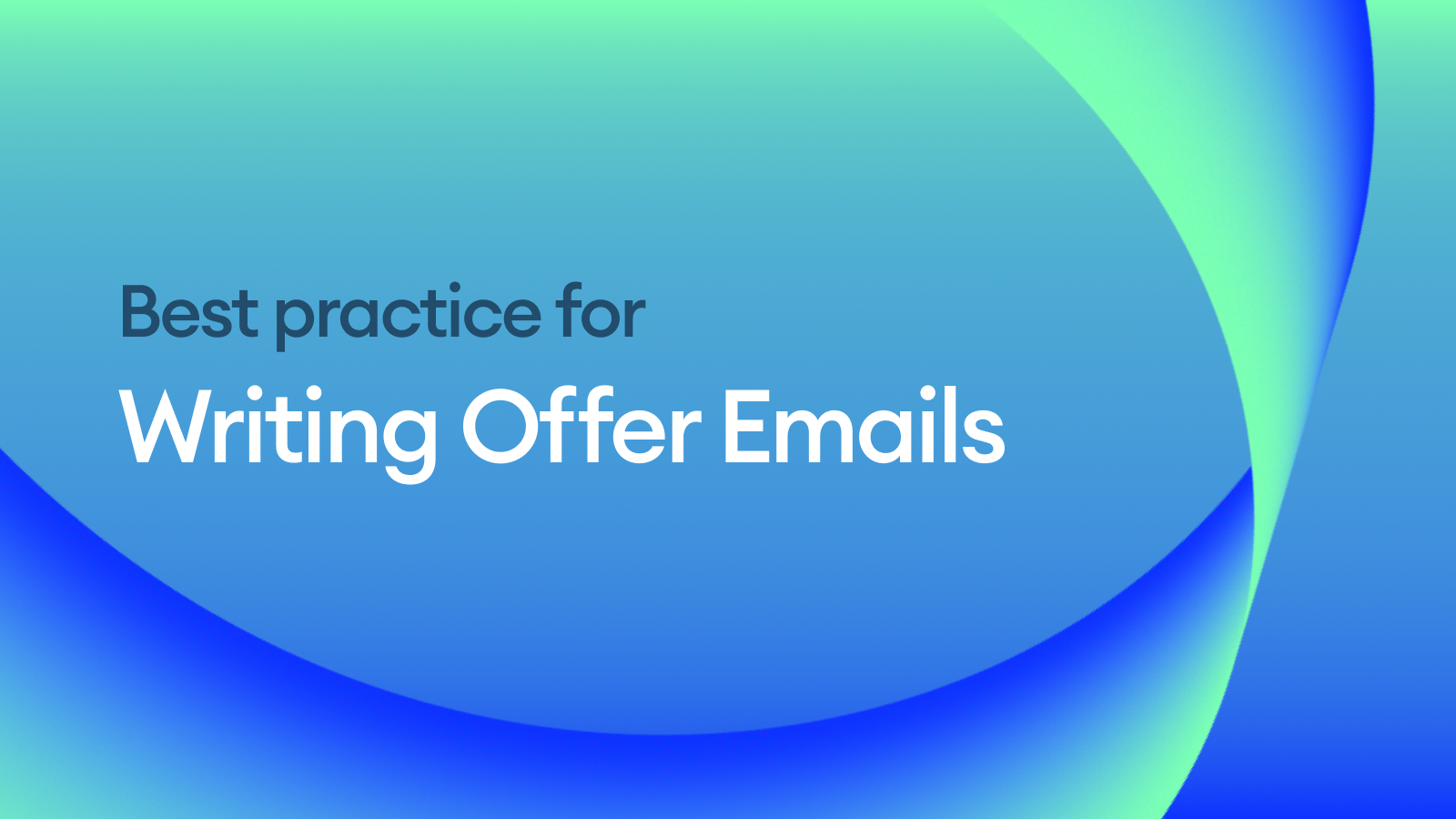In the competitive landscape of talent acquisition, the ability to craft compelling and clear offer emails is paramount. These communications not only formalize the employment offer but also set the tone for the candidate's future relationship with the organization. A well-written offer email can increase offer acceptance rates, reduce ambiguity, and expedite the acceptance process, ultimately contributing to the organization's success in securing top talent.
Importance of Writing Good Offer Emails
- First Formal Interaction: The offer email is often the first official communication a candidate receives from the company after the interview process. It represents the company's professionalism and attention to detail.
- Clarity and Transparency: A well-structured offer email clearly outlines the terms of employment, including salary, benefits, start date, and job responsibilities, ensuring that both parties have a mutual understanding.
- Candidate Experience: Positive candidate experience is essential for employer branding. A thoughtfully written offer email can leave a lasting impression, even if the candidate chooses not to accept the offer.
- Legal Protection: Including all necessary details in the offer email helps protect both the employer and the candidate by providing a written record of the agreed-upon terms.
- Efficiency in Hiring: Clear and concise offer emails can speed up the acceptance process, reducing the time a position remains open and minimizing the chances of miscommunication.
Best Practices for Writing Offer Emails
To ensure that your offer emails are effective and professional, consider the following best practices:
- Subject Line Clarity: Use a clear and direct subject line, such as "Job Offer from [Company Name] for [Position Title]."
- Personalization: Address the candidate by name and reference specific aspects of their interview or qualifications to make the email personalized.
- Complimentary Language: Use complimentary language to make the candidate feel valued and appreciated for their skills and experience.
- Clear Structure: Organize the email into distinct sections, making it easy for the candidate to find and understand key information.
- Detailed Information: Include all relevant details such as position title, salary, benefits, start date, work location, and reporting structure.
- Positive Tone: Maintain an enthusiastic and welcoming tone to convey the company's excitement about the candidate joining the team.
- Call to Action: Clearly state the next steps, including how and by when the candidate should respond, and provide contact information for any questions.
- Professional Formatting: Use a clean and professional layout with appropriate headings and bullet points to enhance readability.
- Proofreading: Ensure the email is free from grammatical errors and typos, reflecting the company's attention to detail.
Example Offer Email
Subject: Job Offer from [Company Name] for [Position Title]
Dear [Candidate Name],
We are pleased to extend an offer for the position of [Position Title] at [Company Name]. We were highly impressed with your experience throughout the interview process. In particular, [Specific skill or experience]
The Details of your position:
- Title: [Role]
- Start Date: [Date]
- Salary: $[Salary] per annum
- Benefits: [Benefits]
Responsibilities:
[Responsibilities]
Next Steps:
Please review the attached offer letter and provide your acceptance by [Deadline]. If you have any questions, feel free to contact me at [Your Email] or [Your Phone Number].
We are excited about the possibility of you joining [Company Name] and look forward to your positive response.
Best regards,
[Your Full Name]
[Your Job Title]
[Company Name]
[Your Contact Information]
Tips for Writing Effective Offer Emails
Implementing writing offer emails effectively involves attention to detail and a strategic approach. Here are some tips to enhance your offer email communications:
- Timeliness: Send the offer email promptly after the decision is made to maintain the candidate's interest and momentum.
- Customization: Tailor each offer email to the specific candidate, highlighting aspects of the role that align with their career goals and interests.
- Clear Terms: Avoid jargon and ensure that all terms are clearly defined to prevent misunderstandings. Include any contingencies or conditions that may apply.
- Professional Language: Use formal language while maintaining a friendly and approachable tone. This balance fosters professionalism and warmth.
- Accessibility: Ensure that the email is accessible on various devices and that attachments (if any) are in widely accepted formats like PDF.
- Follow-Up: If you do not receive a response by the deadline, follow up with the candidate to address any concerns or questions they may have.
- Legal Compliance: Make sure the offer complies with local labor laws and includes any legally required information or disclaimers.
- Feedback Opportunity: Encourage candidates to ask questions or seek clarification, demonstrating the company's openness and supportiveness.
Summary
Crafting effective offer emails is a vital component of the recruitment process, serving as the bridge between candidate selection and onboarding. By adhering to best practices such as clear communication, personalized content, and professional formatting, HR professionals can enhance the candidate experience and increase the likelihood of offer acceptance. Incorporating well-structured templates and adhering to strategic tips ensures that offer emails not only convey essential information but also reinforce the organization's commitment to potential employees. In an environment where top talent has numerous opportunities, mastering the art of writing offer emails can significantly impact an organization's ability to attract and retain the best candidates.


